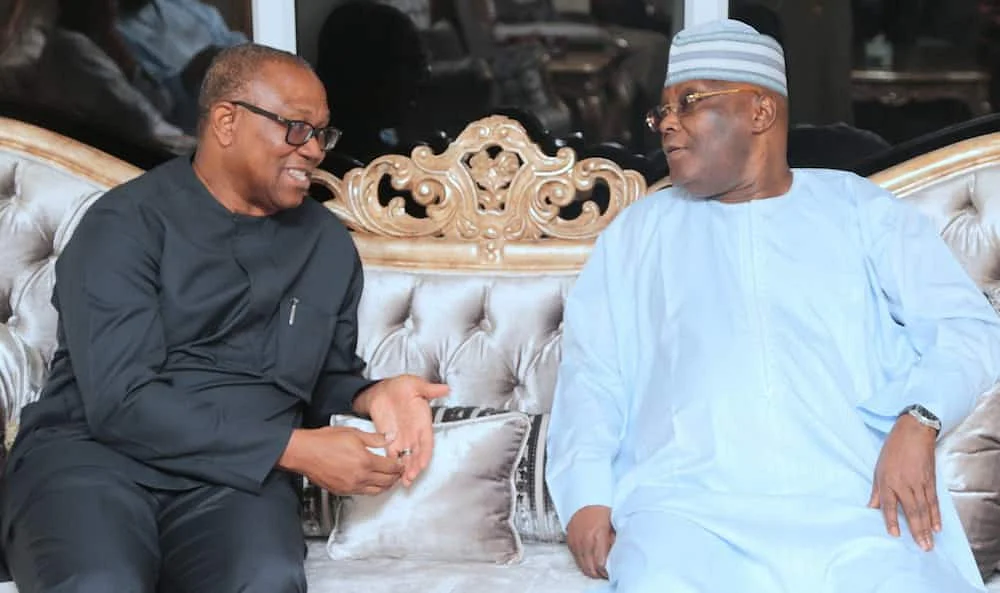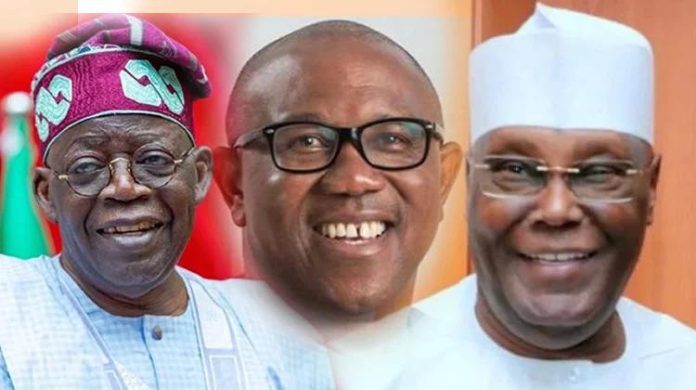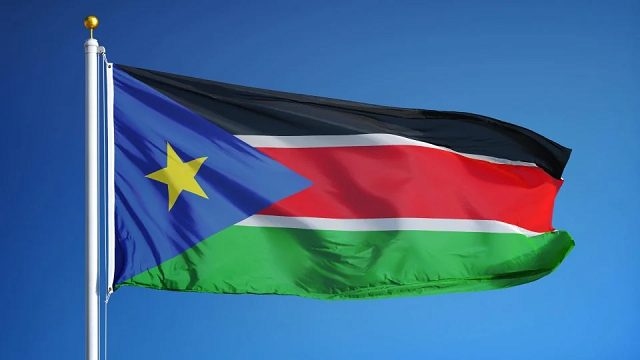Come Saturday 25, 2023, which is about 63 days from now, Nigerians will decide who will succeed President Muhammadu Buhari.
However, while eligible voters would queue in polling units across the country to decide the fate of the leading candidates in what has been said to be a three-horse race, whoever emerges the winner of the presidential race between Peter Obi of the Labour Party, Atiku Abubakar of the Peoples Democratic Party (PDP), and Bola Tinubu of the ruling-All Progressives Congress (APC), will have a four-year tenure to lead a distressed nation struggling with high unemployment figures, biting poverty, unabating insecurity, rising inflation, crude oil theft, dwindling revenues, high debt burden, Industrial (trade union) crises, etc.
How Nigerians will vote in 2023
The Independent National Electoral Commission (INEC) disclosed that it has registered a total number of 96,303,016 voters across the country.
Going by regional figures, the Northwest part of the country accounts for the highest number with 22,672,373 voters, followed by the Southwest, with 18,332,191 prospective voters. Northcentral comes third with 15,680,438 voters. South-south has 15,299,374 voters, while the northeast has 12,820,363 voters, and the lowest is southeast with 11,498,277 voters.

Meanwhile, out of the newly registered voters, Lagos and Kano have the highest with 585,629 and 569,103 respectively. Delta state has 523,517, Kaduna state came 4th with 479,231 voters, followed by Rivers state with 473,924. Bayelsa recorded 444,652 while Ebonyi has 401,501 newly registered voters.
On a regional basis as far as newly-registered voters are concerned, Northwest has the highest number with 2.51 million, followed by south-south, with 2.46 million. Northcentral came third with 2.31 million voters, southwest had 2.04 million and northeast recorded 1.53 million. Southeast has the lowest with 1.44 million voters.
Peter Obi, Atiku, And Tinubu jostle for votes
In view of Nigeria’s political landscape, BizWatch Nigeria understands that out of the about 15 political parties that have presented their candidates for the 2023 presidential race, members of the public appeared to only have interest in Obi, Atiku, and Tinubu. They are from Southeast, Northeast and Southwest zones respectively.
As the Election Day approaches, the aforementioned candidates, who appeared to be ready for the showdown, have presented their plans, and economic agendas for the country.
While Obi focuses his campaign message on introducing production formula that would ultimately be designed to increase exportations, and reduce importation, Atiku has communicated his plan to privatise several capital projects in the country, as he insisted that the Federal Government (FG) lacked the funds to operate ports, railway, amongst others.
On the other hand, Tinubu vowed to stop subsidy payments for Nigeria’s economic progress.
Who’s likely to win the 2023 presidential election?
Going by the INEC’s figure on registered voters, Tinubu appears to have more leverage considering his large supporters in Lagos, where his party had not lost any governorship election since 1999, and his alliance with Governor Abdullahi Ganduje of Kano State.
However, recent polls have tipped Obi of pulling a surprise and winning the election. Some have predicted a run-off as none of the candidates is likely to get the much-desired quota to be declared winner.













